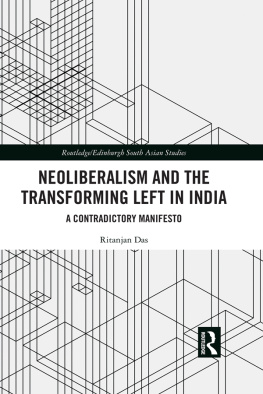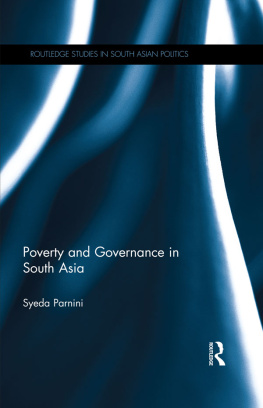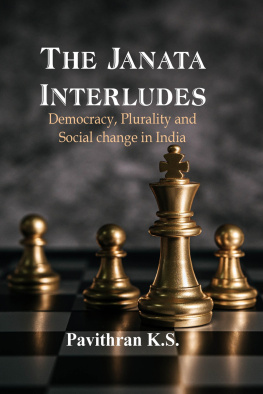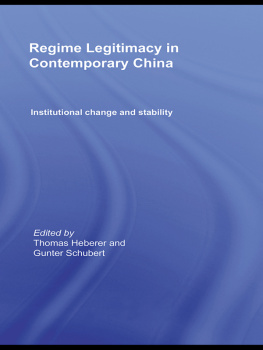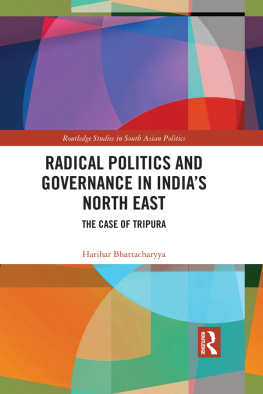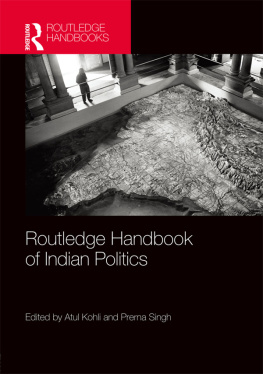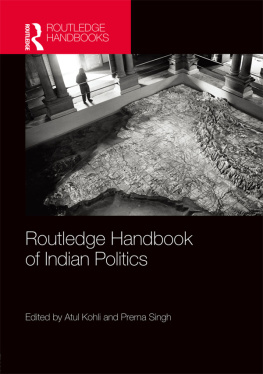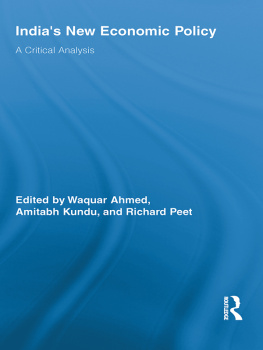West Bengal has often been perceived as somewhat of an aberration in the wider context of a rather chaotic Indian democracy, as the erstwhile Left Front government of the state (spearheaded by the Communist Party of India-Marxist, CPIM) demonstrated a rare instance of political stability, decisively winning seven consecutive democratic elections from 1977 to 2006. Its development record has also been substantial, with a focus on land reforms, the panchayati-raj institution, and an agriculture-centric development agenda.
This book presents a reappraisal of the political economic history of the CPIM/Left Front regime against the backdrop of the Indian reform experience. It examines two distinct areas: the conditions that necessitated the regime to engineer a transition from an erstwhile agricultural-based growth model to a more pro-market economic agenda post-1991, and the political strategy employed to manage such a transition, attract private capital and at the same time sustain the regimes traditional rhetoric and partisan character. In order to develop a more textured understanding of the recent political developments in West Bengal, the author applies a historically nuanced and inductive political-economic analysis, which draws on published materials, and primary material such as government documents and interviews (with bureaucrats, political activists, members of the intelligentsia and ministers).
A valuable contribution to the ongoing debate in the literature on the drifts underway with the Indian Left and Indias economic transformation post-1990s, this book will be of interest to academics in the field of Political Science, Government, Political Economy and South Asian Studies.
Routledge/Edinburgh South Asian Studies Series
Series Editor:
Crispin Bates and the Editorial Committee of the Centre for South Asian Studies, Edinburgh University, UK.
www.routledge.com/asianstudies/series/RESAS
The Routledge/Edinburgh South Asian Studies Series is published in association with the Centre for South Asian Studies, Edinburgh University one of the leading centres for South Asian Studies in the UK with a strong interdisciplinary focus. This series presents research monographs and high-quality edited volumes as well as textbooks on topics concerning the Indian subcontinent from the modern period to contemporary times. It aims to advance understanding of the key issues in the study of South Asia, and contributions include works by experts in the social sciences and the humanities. In accordance with the academic traditions of Edinburgh, we particularly welcome submissions which emphasise the social in South Asian history, politics, sociology and anthropology, based upon thick description of empirical reality, generalised to provide original and broadly applicable conclusions.
The series welcomes new submissions from young researchers as well as established scholars working on South Asia, from any disciplinary perspective.
Democracy and Transparency in the Indian State
The Making of the Right to Information Act
Prashant Sharma
Activism and Agency in India
Nurturing Resistance in the Tea Plantations
Supurna Banerjee
Everyday State and Politics in India
Government in the Backyard in Kalahandi
Sailen Routray
Neoliberalism and the Transforming Left in India
A Contradictory Manifesto
Ritanjan Das
First published 2018
by Routledge
2 Park Square, Milton Park, Abingdon, Oxon OX14 4RN
and by Routledge
711 Third Avenue, New York, NY 10017
Routledge is an imprint of the Taylor & Francis Group, an informa business
2018 Ritanjan Das
The right of Ritanjan Das to be identified as author of this work has been asserted by him in accordance with sections 77 and 78 of the Copyright, Designs and Patents Act 1988.
All rights reserved. No part of this book may be reprinted or reproduced or utilised in any form or by any electronic, mechanical, or other means, now known or hereafter invented, including photocopying and recording, or in any information storage or retrieval system, without permission in writing from the publishers.
Trademark notice: Product or corporate names may be trademarks or registered trademarks, and are used only for identification and explanation without intent to infringe.
British Library Cataloguing-in-Publication Data
A catalogue record for this book is available from the British Library
Library of Congress Cataloging-in-Publication Data
A catalog record for this book has been requested
ISBN: 978-1-138-73229-2 (hbk)
ISBN: 978-1-315-18851-5 (ebk)
Typeset in Times New Roman
by Apex CoVantage, LLC
For Baba
Who was the first to ask me to write
Contents
Guide
The Calcutta of the 1980s and 1990s, a city that I grew up in, had an atmosphere of historic inevitability about its political overtures. Leftism, one could sense, transcended far beyond a political ideology, becoming a way of life and a moral identity in itself. And yet, Calcutta remained a city seething with contradictions, saddled with its own cultural heritage, a ruptured colonial past, an incubator of revolutionary politics, an overbearing intellectual elitism and a stagnant economy. From the roadside squatters to the railway colonies, from the posh South-Calcutta drawing rooms to the dim-lit alleys of the north, from the tea-shops to the coffee house, from the political graffiti to the arthouses, Calcutta was a furious landscape of sights and sounds, but only to reproduce itself at every turn, embroiled in the divine agnosticism of to paraphrase a popular CPIM leader Brahmin communists. It was Calcutta that first inspired me to write, and it is to this city that I owe the deepest gratitude to.
The core of this book emerged out of my PhD research at the London School of Economics (LSE) between 2006 and 2013. The book could not have been written without the guidance of Professor Stuart Corbridge, my PhD supervisor, who in many ways taught me the importance of pushing the boundaries, but not without demonstrable evidence. His understanding of Indian politics and its complexities gave this work the context that it required, and I owe a great deal to his thoughts and ideas, shared over the course of our numerous conversations.
I have received guidance and support from a wide range of individuals, and am deeply grateful to Dwaipayan Bhattacharyya (JNU), Kunal Sen (University of Manchester), Sumantra Bose (LSE), Abhirup Sarkar (Indian Statistical Institute), Sugata Marjit (Centre for Studies in Social Sciences), Shubhashis Gangopadhyay (India Development Foundation), Suparna Pathak and Jayanta Ghoshal ( Ananda Bazar Patrika ), and Nirbed Roy (Asiatic Society). I also owe a special debt to some of my close friends at the LSE and SOAS a core group of Indo-philes Kumar Nilotpal, Praveen Priyadarshi, Jayraj Sunderesan, Neha Khanna, Deepak Nair, Anokhi Parikh, Zaad Mahmood and Prashant Sharma. There is also a larger group of friends and well-wishers whose support has been invaluable over the years: Asok Sen, Rushati Sen, Amarnath Banerjee, Malabi Banerjee, Samudra Sarkar, Abhijit Sengupta, Ipsita Dutta, Vrinda Aggarwal, Bimbabati Sen, Shipra Basu and Rosemary Gosling. I would also like to express my gratitude to Professor Crispin Bates (University of Edinburgh), Dorothea Schaefter and Lily Brown (Routledge) for their support in the preparation of this book. A special note of thanks also goes to Bappa , who willingly gave up his Durga Puja celebrations to escort me around Singur the first time I went there.

